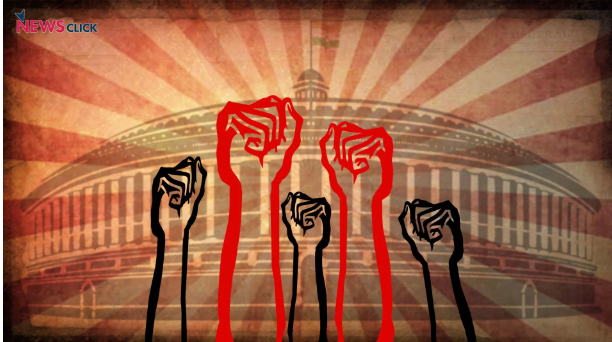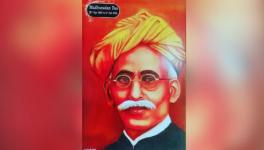Why Arresting the Waning Influence of Trade Unions is Vital

In the build-up to the most recent elections in the United Kingdom, there was, understandably, a spate of predictions about the term of the now-Prime Minister Keir Starmer, a relatively lesser-known face on the UK political landscape. Interestingly, a reasonable amount of this conjecture pertained to what Starmer’s outlook would be on workers’ rights and trade unions.
A piece by The Telegraph (UK) went to the extent of making a “revelation” that the Labour Party leader had plans to give trade unions “a stranglehold on workplaces” which would result in the loss of jobs and enable unions to “bring the country to a halt with crippling walkouts”. The article – which further lists the promise to give all the workers equal rights as one of the dangerous decisions – might not be worthy of serious attention, as its key objective seems to be fear-mongering. However, its claims, in reality, are in contrast with the party’s attempt at watering down some of the progressive pro-worker provisions from the green paper ‘A New Deal for Working People’, which had left the UK unions concerned.
In fact, what truly deserves attention is the space taken up by trade unions (TUs) in this narrative, and the portrayal of their real or imagined strength. With the advent of neoliberalism, trade unions globally are facing challenges of declining membership. The proportion of UK employees who were trade union members fell to 22.3% in 2022 down from 23.1% in 2021 and is the lowest since 1995, according to the country’s Department of Business and Trade.
And yet, unions, as an institution, are far from disappearing from the political horizon in the UK. Their influence—even though shrunken—is recognised, and even exaggerated by Right-wing conservatives. Overall, there seems to be some space available to accommodate their voice and protests and something to gain from their political support; their standing matters.
Now, contrast this with the Indian general elections conducted over a month before the UK elections and the visibility accorded to trade unions here in the political narratives by key parties. Arguably, it isn’t a completely fair comparison given the drastically different economic, political, and industrial trajectories of the two countries. Trade unions also follow very different systems of political and ideological alignments in both countries. Yet, there are a few important commonalities.
The neoliberal policies of the successive governments in India have led to the weakening of Indian trade unions as well, with dwindling membership. Both UK and India have seen a long rule of Right-wing governments that have been averse to unions and pro-worker policies and trade unions from both these countries have missed out, in the past, on reaching out to significant demographics of workers – migrants/immigrants and women, among others.
The onus is often put on the unions themselves for focusing mainly on blue collar, male, and industrial workers in the past. However, in the past few years, many trade unions have tried some course corrections and re-strategised to remain more relevant and inclusive.
In the Indian context, over the past three years, we also saw trade unions aligning with the farmers’ movement, speaking of peasant-worker unity to triumph over divisive barriers, such as caste and religion. And it has yielded results. The central trade unions that campaigned relentlessly against the ruling Bharatiya Janata Party (BJP) in the farming belts did claim a share in the ruling saffron party’s relative decline and gains for Opposition unity.
But, there is still a long way to go for trade unions before they can be truly representative of the majority of workers in India (over 90% of whom are engaged in the unorganised sector). Yet, in an increasingly fragmented, precarious, and volatile labour market—not to mention a highly polarised society—organisation of labour and political action is needed more than ever. To what extent have political parties, particularly those in the Opposition, acknowledged this? A quick look at the election manifestos of some of the Indian political parties may not quite leave us hopeful.
Wide Berth to Trade Unions
The manifesto of the Right-wing BJP, predictably, steers clear of any mention of trade unions. This is hardly a surprise given the ruling party’s infamous bonhomie with Big Capital and its attempt to diminish workers’ rights, protections, and unions’ legitimacy with the ushering of the new labour codes in a bid to encourage “ease of doing business”.
The Industrial Relations Code, 2020, stipulates that every industrial establishment must have a negotiating union or a negotiating council. If there is one registered union for an establishment, that automatically becomes the ‘negotiating union’, as per the Code. If there are several registered unions, the one supported by more than 51% of the workforce forms the negotiating union, according to Section 14(3) of the Code. Such a regulation undermines the presence and scope of the smaller or non-registered unions, who will be denied the opportunity to participate in the negotiations or widen their base, while the one big union – which could easily be a management dummy – dominates the bargaining processes. Apart from this, the Code effectively extends the barriers to striking work by making the process mind-bogglingly long and complicated, handing more power to employers.
The past decade, with the BJP at the Centre, has been a profoundly hostile period for trade unions, workers, and social movements. The ruling party resorted to a myriad of tactics to suppress the farmers’ protests—ranging from vilification and shoddy negotiations to outright suppression and communalisation. It has largely turned a deaf ear to workers and unions protesting against the labour codes and scheme workers demanding fair remuneration, social security, and better working conditions. Ashish Mishra, son of then Union Minister Ajay Mishra, is currently on trial for the brutal murder of four farmers and a journalist during a farmers’ protest in Lakhimpur Kheri, Uttar Pradesh, against the now-repealed farm laws. In this context, BJP’s manifesto is aligned with its politics, leaving no space for the right to collective bargaining
As for the Congress election manifesto released ahead of the 2024 Lok Sabha elections in May, the central theme was social justice – apparent from its title ‘Nyay Patra’. Its release followed the Bharat Jodo Nyay Yatra, a campaign led by the party leader Rahul Gandhi, which aimed at “uniting India through justice” by seeking to understand the challenges and injustices faced by the poor, labourers, farmers, women, youth, backward classes, Dalits, tribals, and minorities.
The largest Opposition party, through its campaign as well as the manifesto, spoke a great deal about the anti-people policies of the incumbent regime. Unfortunately, yet predictably, it also steered clear of any mention of the workers’ right to collective bargaining and the need to reverse the successive governments’ attempts at weakening trade unions in the past four decades.
The Congress manifesto touched upon the unemployment issue and proposed schemes for skilling and job creation. However, a better permeation of the social justice theme warranted a commitment to strengthening the institutions that can protect workers from the exploitative and predatory practices.
This commitment could have been achieved by broadly three approaches. One, strengthen the pre-existing labour laws. This exercise on the level of legislative intervention needs to be guided by a thorough understanding of the severe under-implementation of the laws and of the overall inadequacy of the present systems and mechanisms.
Two, introduce progressive labour law reforms, especially equipped to deal with the rapidly changing structure and composition of the labour market and the fragmented labour force today. And, three, extend legal and political support to workers’ organisations, which can play a crucial role in amplifying workers’ voices, protecting the latter’s rights, and acting as a counterweight to the might of the capital.
The party manifesto’s section dedicated to the ‘workers’ category is a tad more inclusive with attention paid to hitherto overlooked categories—such as migrant and unorganised sector workers—and dimensions of discrimination (although limited to only gender). But it fails in paying any attention to the role trade unions can play in ensuring the implementation of labour laws and workers’ welfare. This isn’t surprising given Congress's history with trade unions; in its post-Independence rule, the party sought to control unions, contributing to the depoliticisation of the working class in its quest for "industrial peace”.
Even in the recent manifesto of the Congress party, one can see a strange emphasis on productivity in the section dedicated to workers. The very first point speaks the language of capital and corporations, advocating high productivity. One might have reasonably expected that this section would instead highlight the extreme exploitation faced by workers in the relentless pursuit of productivity.
The manifesto also mentions restoration of a balance between labour and capital, yet it glaringly ignores the significant power imbalance between the two. To address this imbalance, it is imperative to empower workers. Allowing them to collectivise and use their agency to articulate their needs and interests would be the logical solution. However, the Congress manifesto conspicuously omits any reference to workers’ unions or their right to organise.
Even if we engage with the contention that the absence of support for unions is due to concerns about corruption, the manifesto fails to propose any alternatives for workers to be heard. There is no mention of support for NGOs or activists working with labourers, leaving a void where there should be advocacy and support for workers’ rights.
Manifestos and poll promises or “guarantees” of the major Opposition parties, such as Aam Aadami Party, Samajwadi Party, Dravida Munnetra Kazhagam, and Trinamool Congress, show similar apathy towards trade unions, the Left parties, such as the Communist Party of India (Marxist) being one of the few exceptions.
Need for Better Collaboration
The political parties now sitting in the Opposition in the Lok Sabha must seize the opportunity as well as take the responsibility to stand with trade unions and share the space for political action. While manifestos might be thought of as outdated, they do continue to be roadmaps that reveal a party's ambitions, positioning, ideology, and policy stances, even when out of power. Reflecting on these commitments, revising them, forging new and gainful partnerships, and redrawing this roadmap, could, therefore, pave the way forward for them.
In this process, recognising the potential of trade unions can be greatly beneficial. The need to ensure good working conditions, fair pay, and the eradication of exploitative employment practices must be equally amplified along with the demand for job creation and the role of trade unions in giving voice to the working people.
Trade unions may be far from perfect and must indeed be subject to scrutiny and reform. Yet, their disappearance from the political horizon is highly undesirable.
The writer is an independent researcher who looks at the intersection of migration and labour organisation. She is also associated with the Centre for Financial Accountability. The views are personal.
Get the latest reports & analysis with people's perspective on Protests, movements & deep analytical videos, discussions of the current affairs in your Telegram app. Subscribe to NewsClick's Telegram channel & get Real-Time updates on stories, as they get published on our website.
























